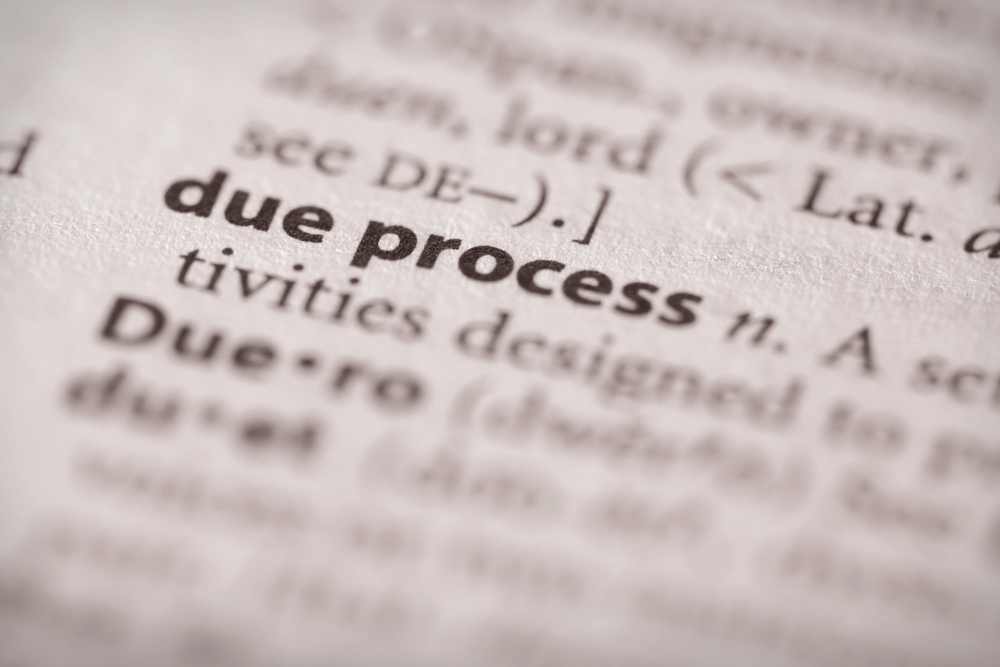
On September 25, 1789, the Fifth Amendment to our US Constitution was introduced. And in 1791, it became law. It reads:
“No person shall be held to answer for a capital, or otherwise infamous crime, unless on a presentment or indictment of a Grand Jury, except in cases arising in the land or naval forces, or in the Militia, when in actual service in time of War or public danger; nor shall any person be subject for the same offence to be twice put in jeopardy of life or limb; nor shall be compelled in any criminal case to be a witness against himself, nor be deprived of life, liberty, or property, without due process of law; nor shall private property be taken for public use, without just compensation.”
This important section of our constitution’s Bill of Rights, guarantees that no citizen is deprived of life, liberty, or property without due process of law. That due process begins with notification of all defendants that their interests (in life, liberty, or property) could be in jeopardy due to an impending court case.
[Fun fact: “No one shall be deprived of life, liberty or property without due process of law,” is the only command stated in the Constitution two times.]
In 1868, Congress added the 14th Amendment to the Constitution. Section One reads:
“All persons born or naturalized in the United States, and subject to the jurisdiction thereof, are citizens of the United States and of the State wherein they reside. No State shall make or enforce any law which shall abridge the privileges or immunities of citizens of the United States; nor shall any State deprive any person of life, liberty, or property, without due process of law; nor deny to any person within its jurisdiction the equal protection of the laws.”
As process servers, it is our job to help protect everyone’s constitutional rights to due process. When we serve important legal documents directly to the person(s) named in a case, we are helping to make sure that they are aware of the pending proceedings and have ample time to respond and tell their side of the story.
When an individual is evasive or not able to be found, the court may order service by alternative methods including any and all of the following:
- Publication (in an approved newspaper)
- Posting (usually in the courthouse of the county where the individual was last known to reside)
- Mailing via USPS First Class mail and/or Certified Mail, Return Receipt Requested
- Text message
- Email message
- Private message on a social media account
Alternative methods of service aren’t always successful (meaning, if you are served via publication, you may not see the notice) but that doesn’t stop the case from proceeding through the court system. The plaintiff also has rights to be heard.
You can help celebrate this important date (a date created by the National Association of Professional Process Servers) by sharing this information with your friends and family. Due process is crucial to our legal system and helps make sure all Americans’ rights are preserved.
